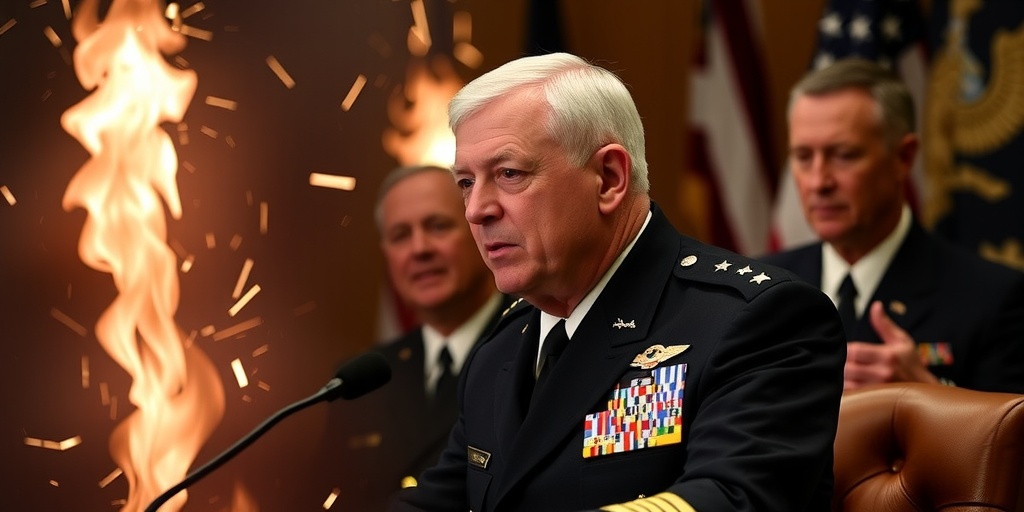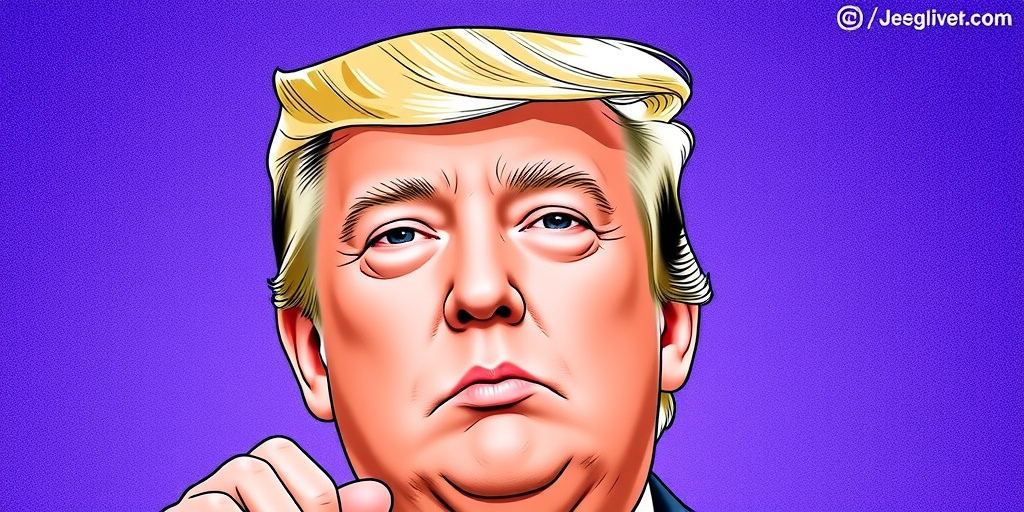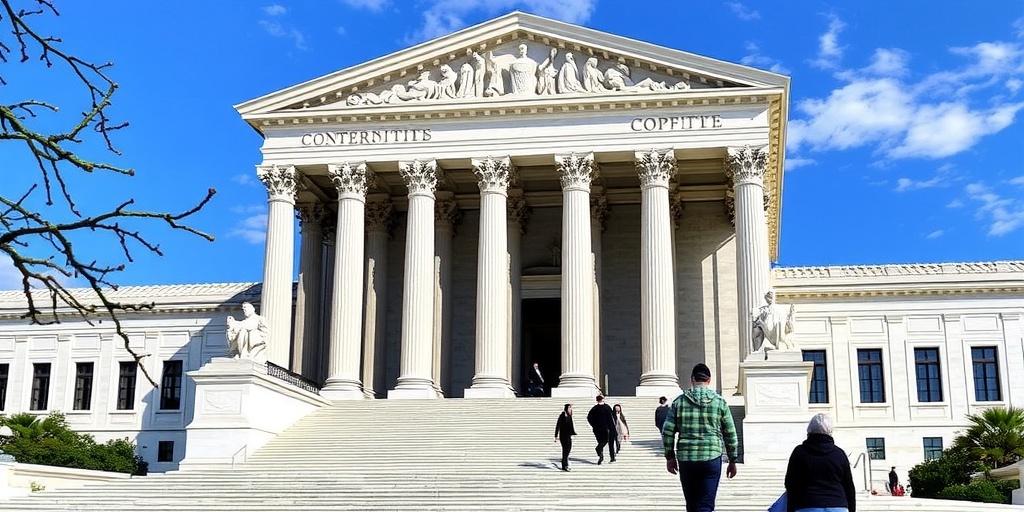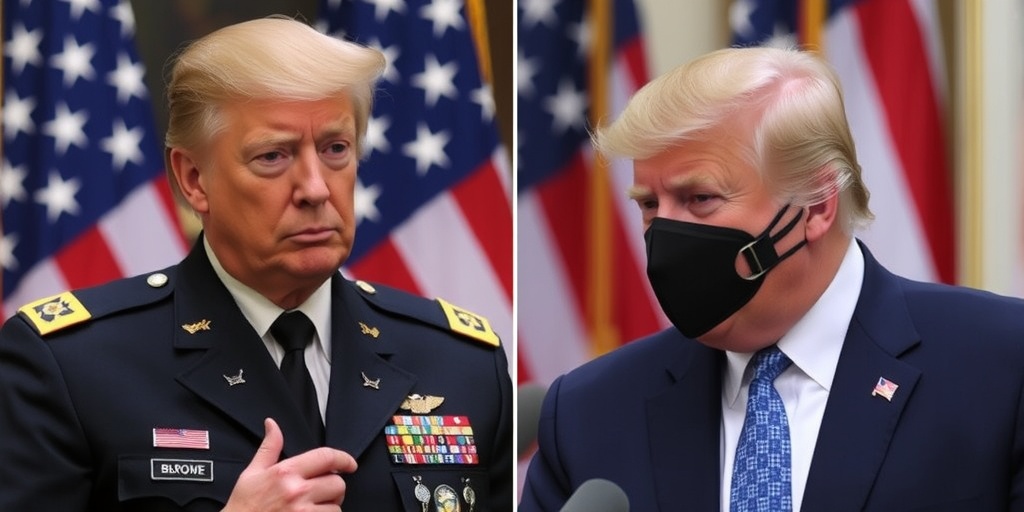Now Reading: Joint Chiefs Chairman’s Firing Sparks Backlash
-
01
Joint Chiefs Chairman’s Firing Sparks Backlash
Joint Chiefs Chairman’s Firing Sparks Backlash

Democrats and certain veterans expressed strong emotions—anger and sorrow—over the recent firing of General Charles Q. Brown Jr. from his position as chairman of the Joint Chiefs of Staff. This event has sparked allegations that President Trump is orchestrating a political purge of military leaders. On Friday night, Trump announced that he would be replacing General Brown with a relatively obscure retired Air Force three-star general, Dan Cain. Trump’s administration, alongside Defense Secretary Pete Hegseth, has indicated their intention to remove so-called “woke” officers in favor of those who prioritize a more traditional “warrior culture.” During this same night, five other Pentagon officials were let go.
Critics, particularly retired military officers, believe that General Brown’s dismissal is unwarranted. They describe him as the kind of combat-ready officer that the Trump administration claims to seek in military leadership. Mark Montgomery, a retired rear admiral and senior fellow at the Foundation for Defense of Democracies, has labeled General Brown a “proven war-fighter.” He lamented that Brown’s removal could be detrimental to military readiness and morale. Montgomery stated, “His dismissal is a loss to the military. Any further general officer firings would be a catastrophe and impact the morale and war-fighting readiness of the joint force.”
Senator Jack Reed, a Democrat from Rhode Island and the ranking member of the Armed Services Committee, issued a remarkably forceful statement against General Brown’s termination. He cautioned that the White House, along with Hegseth, may look to dismiss additional military officers in a similar manner. Reed asserted, “This appears to be part of a broader, premeditated campaign by President Trump and Secretary Hegseth to purge talented officers for politically charged reasons. This undermines the professionalism of our military and sends a chilling message through the ranks.”
A bipartisan group known as National Security Leaders for America, composed of former military and civilian leaders, also condemned the abrupt removal of seasoned military officers. They emphasized that such actions, taken without just cause, not only weaken the armed forces but also embolden America’s adversaries. “Removing experienced leaders with meritorious records weakens the force and emboldens America’s enemies,” the group stated.
Representative Adam Smith, a Democrat from Washington and the ranking member of the House Armed Services Committee, characterized the firings as a “Friday night massacre,” suggesting that they create chaos and undermine national defense. He described General Brown as “a true patriot,” known for his intelligence, competence, and respectful demeanor across party lines. Smith criticized the president for prioritizing loyalty over demonstrated ability and fidelity to the Constitution.
Other Democratic lawmakers have echoed Smith’s sentiments. Senator Richard Blumenthal from Connecticut expressed that the firings seemed politically driven rather than merit-based, suggesting that countries like Russia and China might be relishing the upheaval within the U.S. military. Senator Adam B. Schiff of California further articulated the concern that the Trump administration is engaged in a systematic purge of independent leaders. Senator Mark Kelly of Arizona labeled the firings as “disrespectful to the service and sacrifice of everyone who’s put their life on the line for our country.”
Senator Elissa Slotkin, a former senior Pentagon official during the Obama administration, cautioned that Trump’s actions could instill a sense of dread in any American who values a military that operates free from political influence. She remarked, “For most of our history, leaders from both parties have largely kept their political activities separate from how they handle the military. But not this president and not this SecDef. They have brought their political retribution to the very war-fighters they claim to care about. And we are no safer for it.”
Throughout the Biden administration, Republicans have criticized the Pentagon for allegedly succumbing to liberal agendas, particularly regarding diversity initiatives. However, after General Brown’s firing, even some Republican lawmakers showed restraint. While they acknowledged his service, they refrained from openly criticizing Trump’s decision.
Senator Roger Wicker, chairman of the Armed Services Committee, expressed confidence that Trump would select a “qualified and capable successor,” yet he did not offer specific praises for Brown or his successor, Dan Cain. John R. Bolton, who served as national security adviser to Trump during his first term, characterized the dismissal as a misstep that threatens to further politicize the military. “This is the retribution campaign at work,” Bolton observed. He voiced concerns about the long-term implications of such politicization on the integrity of military operations.
As this political drama unfolds, the future of military leadership and the potential implications for U.S. defense strategies remain uncertain. Critics voice alarm over the consequences, while supporters of the Trump administration laud a renewed focus on a traditional military ethos. The ongoing debate reflects broader societal tensions surrounding the military’s role and independence, raising essential questions about the interplay between politics and defense leadership in America.
Stay Informed With the Latest & Most Important News
Previous Post
Next Post
-
 01New technology breakthrough has everyone talking right now
01New technology breakthrough has everyone talking right now -
 02Unbelievable life hack everyone needs to try today
02Unbelievable life hack everyone needs to try today -
 03Fascinating discovery found buried deep beneath the ocean
03Fascinating discovery found buried deep beneath the ocean -
 04Man invents genius device that solves everyday problems
04Man invents genius device that solves everyday problems -
 05Shocking discovery that changes what we know forever
05Shocking discovery that changes what we know forever -
 06Internet goes wild over celebrity’s unexpected fashion choice
06Internet goes wild over celebrity’s unexpected fashion choice -
 07Rare animal sighting stuns scientists and wildlife lovers
07Rare animal sighting stuns scientists and wildlife lovers





















